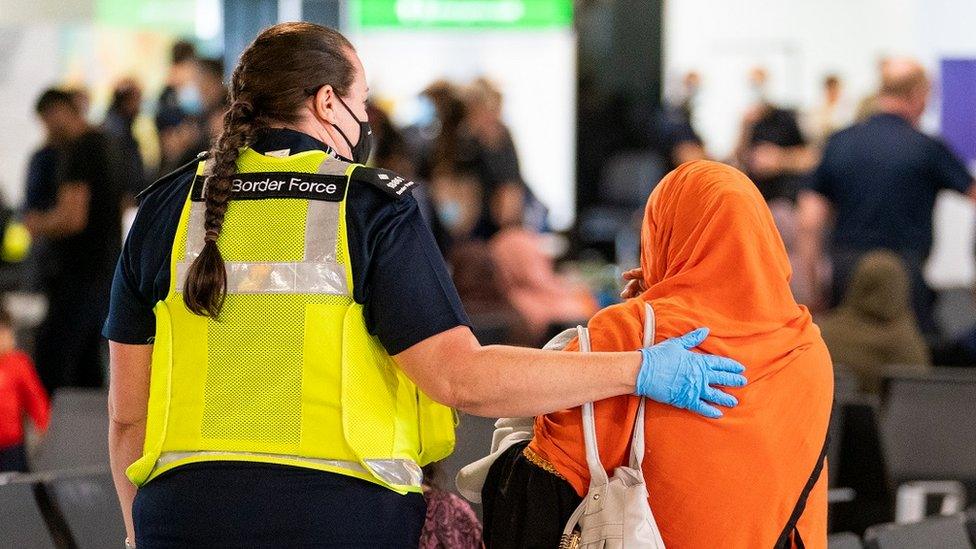Warning of homelessness among refugees issued by Telford council leader
- Published

Shaun Davies will highlight refugee issues in his first speech as chair of the Local Government Association
Pressures on local authorities to protect and support asylum seekers have created a "crisis point", according to one leader.
Shaun Davies, leader of Telford and Wrekin Council, said demands on councils were "unsustainable".
In his first speech as chair of the Local Government Association (LGA), he will highlight pressures on housing, homelessness and children's services.
The Home Office said it had a plan backed by £285m of new funding.
"We want to work with the government to get this right," Mr Davies said.
There was a risk of Afghan families becoming homeless and ending up in temporary accommodation due to a housing shortages as a government deadline for them to leave hotels approaches, said the LGA.
About 8,000 individuals and families were currently housed at 59 bridging hotels across the country, it said.
They were served notice by the Home Office to leave by the end of August.
Councils had a "proud history" of stepping up during humanitarian crises, said Mr Davies, but the acute shortage of housing and the short timeframe was making the situation "extremely challenging."
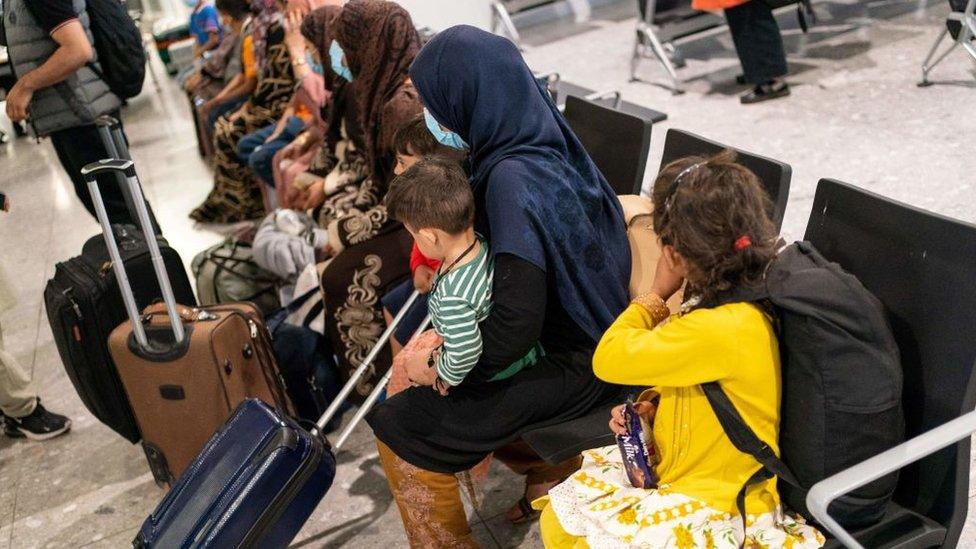
About 8,000 individuals and families who fled Afghanistan were staying in 59 bridging hotels in the UK, the LGA said
In August 2021, thousands of people fled Afghanistan after the Taliban took back control of the country.
Veterans Minister Johnny Mercer promised "generous" support in March over the plan to move Afghan refugees out of hotels, with trained staff based at hotels to provide advice.
He added the government would provide councils with £35m of new money to fund potential homelessness demand, along with a second round of funding worth £250m.
But the LGA said a "genuine partnership" was urgently needed to better plan how to meet housing needs.
The number of Ukrainian refugee households had also more than doubled in the past six months with almost 700 now living in temporary accommodation, they added.
Mr Davies will address a three-day LGA annual conference in Bournemouth from Tuesday.
Hotels were not meant to be long-term accommodation for Afghans who fled to the UK and they should not be in them "for months or years on end", a government spokesperson said.
The plan, with £285m of new funding, would more them into long-term homes, they added.

Follow BBC West Midlands on Facebook, external, Twitter, external and Instagram, external. Send your story ideas to: newsonline.westmidlands@bbc.co.uk, external
- Published28 March 2023
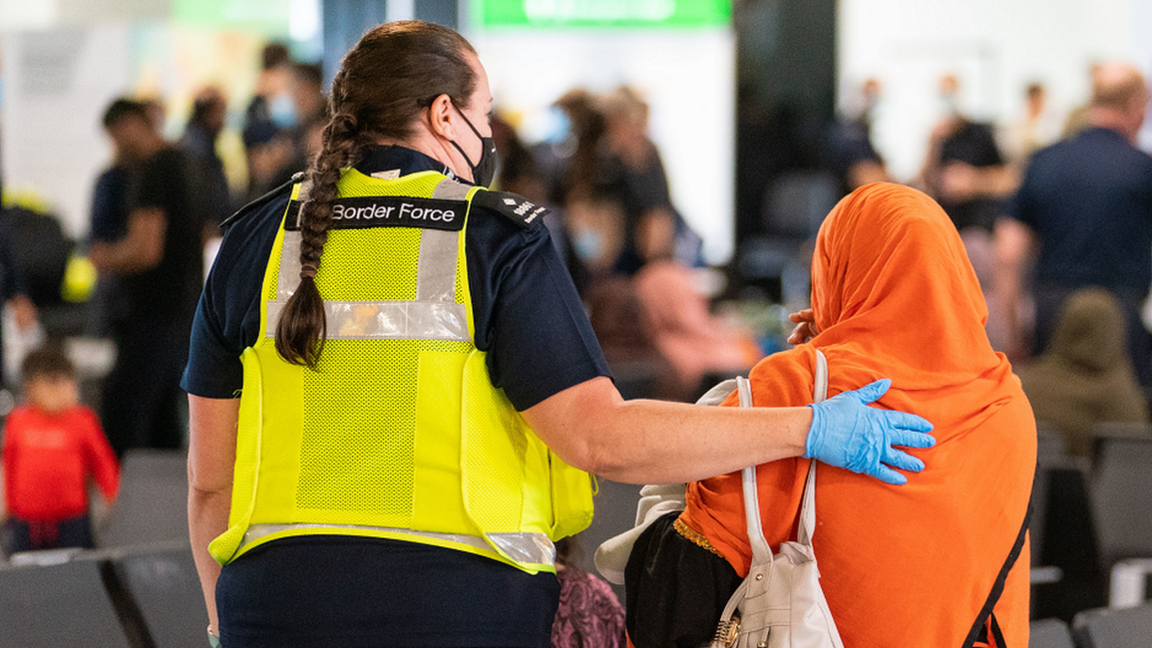
- Published5 August 2022
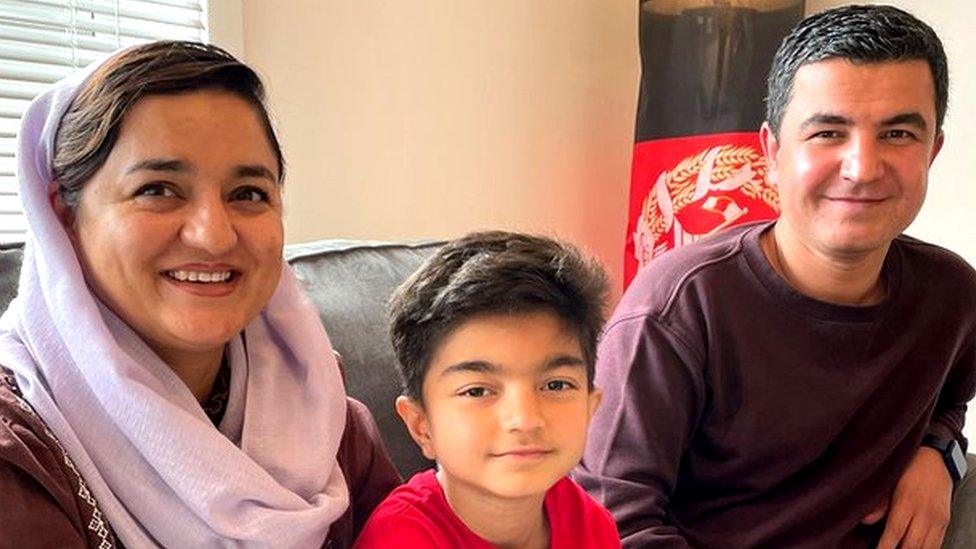
- Published12 January 2023
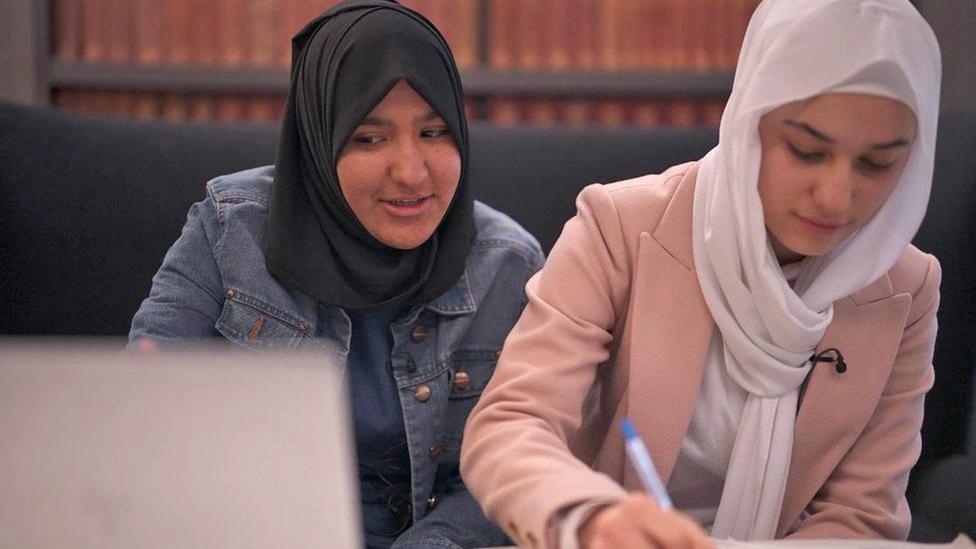
- Published3 August 2022
